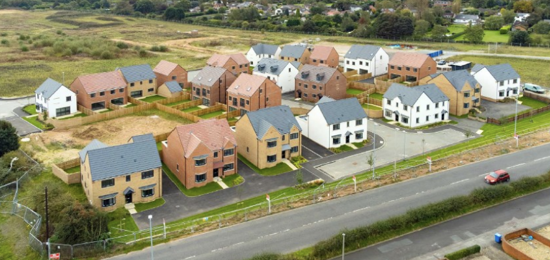From casualty to champion: the growing influence of SME developers
Britain’s small and medium-sized developers were squeezed more than most by the fallout from the Global Financial Crisis 12 or so years ago.
According to official figures, nearly seven out of 10 (68%) new homes completed in 2008 were built by SMEs. By 2015, that figure had shrunk to 41% as the smaller players lost market share to the big beasts of the housebuilding sector.
In its 2017 Housing White Paper, the Government put it more starkly, noting that “Britain’s 10 largest housebuilding firms build around 60% of our new private homes.”
Smaller developers, who lack the cash reserves and economies of scale of the big players, suffered during the credit crunch as the high street banks all but ceased lending to them.
They then fell further behind during the boom years that followed the recession, as the residential sector’s behemoths swallowed up great tracts of land – irrespective of whether they intended to build on it immediately or not.
That White Paper, complete with its politically-charged title Fixing our broken housing market, argued that a sector dominated by a few big players has little incentive to innovate, citing ONS figures which show the construction industry has increased productivity by just 11% over the past 25 years – barely a quarter of the improvement recorded by the economy as a whole. It also proposed a number of measures to shake up and diversify the housebuilding sector and, above all, get more homes built.
Supporting SME developers
The Government has since taken steps to make it easier for SME developers to access finance, and introduced a planning framework that speeds up planning decisions and is more supportive of higher levels of development. Regional authorities have done their bit as well. For example, London’s Small Sites Small Builders programme allows small-scale housebuilders to acquire parcels of publicly-owned land for development.
The initiative, which also helps public sector landowners like TfL and the borough councils dispose of surplus sites more easily, has spurred extra housebuilding across the capital. The Mayor of London’s office estimates that 25% of London’s new housing needs could be met by developments built on sites less than a third the size of a football pitch.
Keeping the wheels turning
SME developers have kept the flag flying for homebuilding elsewhere, too. The latest official data shows that private sector residential construction is flatlining – in the three months to the end of October, it was down 0.4% on the same period in 2018 – but that smaller developers have played a key role in holding the line.
While the combination of Brexit uncertainty, fragile demand and softening house prices has led many of the sectors’ larger players to mothball their development plans, in many areas it’s the SME players who have kept the wheels turning. In part this continued activity is dictated by cashflow and raw commercial forces. Without the deep pockets and landbanked sites of their larger rivals, smaller developers may not have the luxury of being able to defer investment decisions indefinitely.
But it’s also a testament to their greater agility and the closeness of their connection to their local market. Even when times are tough, developers who are nimble enough to spot and seize opportunities that the big beasts might overlook will thrive. Their success is also being powered by a steady easing of what has long been seen as a major barrier to smaller developers – the availability of finance.
Increased financial firepower
The Federation of Master Builders’ 2019 survey of housebuilders found that access to finance was seen as a hurdle by just 39% of SMEs, the lowest level recorded in the survey’s eight year history.
A decade ago a new generation of lenders, the challenger banks, stepped up to fill the gap left in the development finance space by the retreat of the mainstream banks. The sector has now matured, and boasts both strength and depth – with a cohort of well-funded specialist lenders providing finance that’s highly tailored to the needs of SME developers.
The combination of their financial firepower and the proven agility of Britain’s regional developers is a powerful one. Together they are changing the face of residential development and tackling Britain’s housing crisis, project after project.


